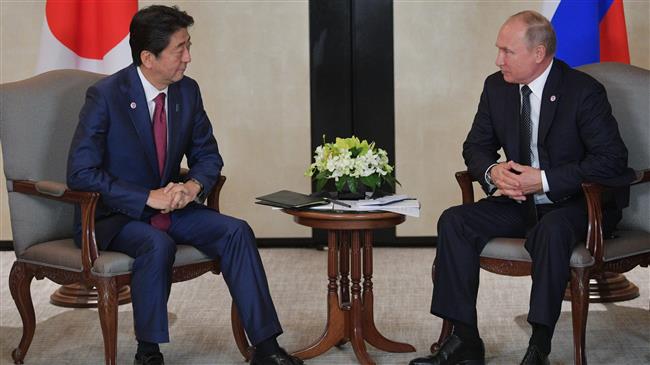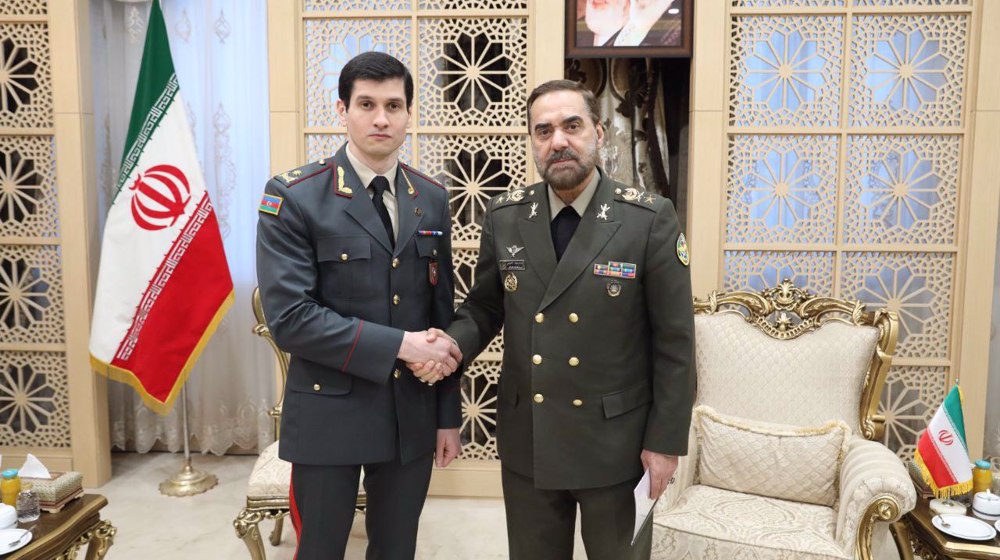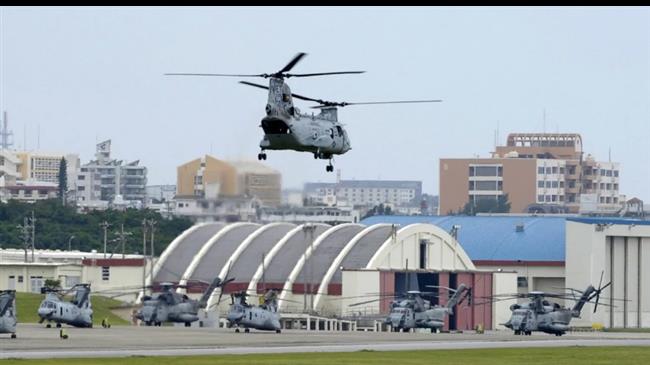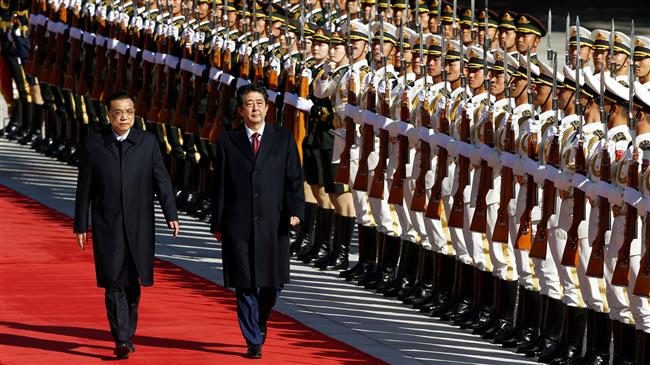Japan PM assures Russia's Putin of no US bases on disputed islands if handed over: Report
Japanese Prime Minister Shinzo Abe has reportedly assured Russian President Vladimir Putin that if the Kremlin hands over four disputed islands in the Western Pacific to Japan, they would not be subjected to a US military presence.
Abe and Putin agreed during a summit meeting in Singapore on Wednesday that they will accelerate peace treaty talks based on a 1956 joint declaration with the former Soviet Union in which Moscow pledged to hand over the two smaller of the four islands to Tokyo following a formal peace treaty between the two countries, Japanese media reported on Friday.
The disputed isles are known in Japan as the Northern Territories and referred to in Russia as the Southern Kuriles. They have strategic value for Moscow and guarantee Russian maritime access to the Western Pacific.
Japan has long insisted that its sovereignty over all four islands must be confirmed prior to the signing of a peace treaty with Russia.
However, any treaty involving transfer of sovereignty of the islands to Japan would also have to address how the US-Japan security treaty, which remains the core of Japan’s diplomacy, would affect the agreement and whether Washington would have the right to build military bases on the islands.
According to Japan’s Asahi newspaper, Abe assured Putin during the Singapore meeting that Washington would not erect military bases on the two smaller islands thereafter, further noting that the prime minister’s top security adviser had previously stated US bases on isles were a possibility.
Japan’s Chief Cabinet Secretary Yoshihide Suga refused to comment on the report.
Earlier this month, the USS Reagan aircraft carrier took part in a joint military exercise with Japan, involving dozens of US and Japanese ships, hundreds of aircraft, and thousands of military personnel.
The latest drill, which coincides with the visit to the region by US Vice President Mike Pence, comes as Washington's denuclearization talks with North Korea appear to have reached a deadlock.
Pence also attended the summit of the Association of Southeast Asian Nations (ASEAN) leaders in Singapore on Thursday and insisted that there is no place for “empire and aggression” in the Indo-Pacific region, in a remark apparently aimed at China.
“Like you, we seek an Indo-Pacific in which all nations, large and small, can prosper and thrive — secure in our sovereignty, confident in our values, and growing stronger together. We all agree that empire and aggression have no place in the Indo-Pacific,” Pence added.
The US vice president further claimed Washington’s commitment to upholding the “freedom of the seas and skies” as part of the country’s Indo-Pacific strategy.

The Friday report came amid growing indications in recent years that Tokyo was rethinking its position regarding the islands, in the form of a so-called “two-plus-alpha” formula that would focus on the handover of the two smaller isles and some sort of visa-free access to the larger islands, in addition to joint economic projects.
A breakthrough on a deal has been elusive, however. This is while Abe, who is expected to meet Putin again at a Group of 20 summit in Buenos Aires in late November and also in Russia next January, has asserted that he is intent on settling the dispute before leaving office in 2021.
Putin, however, is reportedly less interested in the agreement. Russian news agency Tass quoted the president as saying after his Singapore summit with Abe that talks based on the 1956 document “certainly demands separate, additional and in depth analysis, given that not everything is clear in that Declaration.”
US vetoing of Gaza ceasefire resolution ‘disgraceful’: Iran’s UN envoy
VIDEO | IAEA adopts anti-Iran resolution tabled by E3
VIDEO | Iran's president urges Pope to help end Israel's onslaught in Gaza
Iran's senior legal official: ICC arrest warrant for Netanyahu ‘great victory'
Nov. 21: ‘Axis of Resistance’ operations against Israeli occupation
VIDEO | Israeli forces storm West Bank’s Jenin again, target civilians
Iran activates advanced centrifuges after IAEA's 'unjust' resolution
VIDEO | Press TV's news headlines















 This makes it easy to access the Press TV website
This makes it easy to access the Press TV website